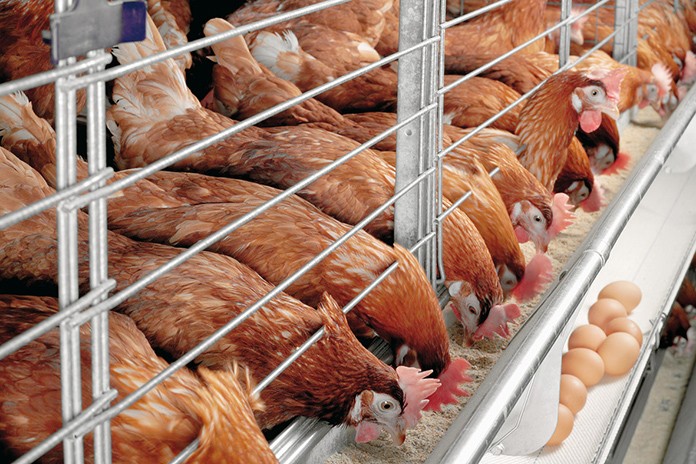ASTRAL Foods shares declined by more than 5 percent on the JSE yesterday morning after the integrated poultry producer reported a 37 percent decline in half-year earnings, hurt by imports and high feed input costs in its poultry division.
Its headline earnings per share for the six months to the end of March fell to 597 cents a share, down from 951c compared to last year.
The group said broiler feed prices increased by 17 percent on a rand a ton basis because of high raw material costs. Broiler feed made up about 69 percent of the cost of producing a broiler.
Poultry imports remained high during the period, with average monthly poultry imports equalling about 26 percent of local consumption, at an average of 39 705 tons a month.
As a result, the group reported a 37 percent decline in operating profit to R344.69 million, and revenue increased by 7 percent to R7.54 billion, largely because of a 7.5 percent increase in poultry broiler sales.
However, the group said poultry price increases were not sufficient to cover the increases in feed and other production-related costs.
Chief executive Chris Schutte said despite the increase in revenue, the interim results mirrored the many challenges faced by the poultry industry.
“These include very high feed input costs not recovered in broiler selling prices and continued high levels of poultry imports,” Schutte said.
Astral declared an interim dividend of 300c a share after reporting net surplus cash of R386m at the end of the period.
In the poultry division, revenue increased by 8.3 percent to R6.1bn, driven by an increase in revenue from higher broiler sales volumes and selling prices and an increase in the group’s breeding operations.
Its operating profit decreased by 78.6 percent to R61m, with broiler selling prices failing to cover the elevated feed prices.
The feed division reported a 12.9 percent increase in revenue to R4bn as a result of higher selling prices on the back of increases in raw material costs.
The group said Safex yellow maize prices increased to an average of nearly R3 400 a ton compared to about R2 700 a ton a year earlier, while feed sales volumes decreased by 2.9 percent.
The division’s operating profit increased by 9 percent to R265m.
The other Africa division maintained a revenue of R238m. The division consists of both feed and poultry operations in Zambia, Mozambique and eSwatini.
Its operating profit slightly increased to R19m.
Looking ahead, Schutte said Astral’s view of the near-term prospects was heavily weighted towards the impact of the exceptionally high raw material costs and a weak economy.
“The bird flu outbreaks reported in the South African poultry industry raise a new threat over the medium term and are being closely monitored,” he said.


